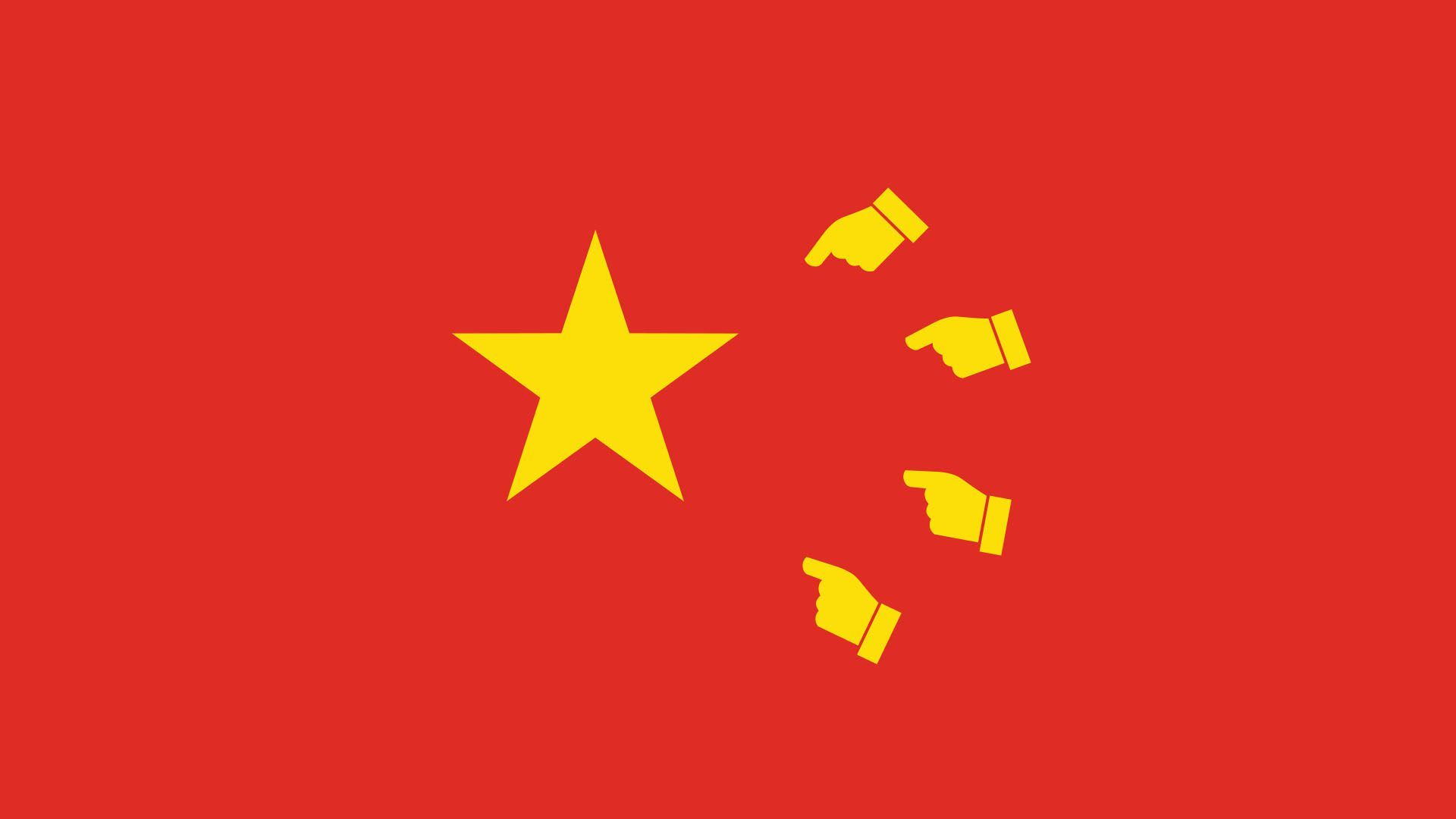Facebook takes down Chinese campaign aimed at U.S. election
Add Axios as your preferred source to
see more of our stories on Google.

Illustration: Rebecca Zisser/Axios
Facebook said Tuesday it took down the first-ever coordinated inauthentic campaign engaged in U.S. politics that originated from China.
Why it matters: China is upping its online disinformation game beyond its own borders. The effort was part of a larger campaign that targeted Southeast Asia.
- In recent months, China has abandoned its typical disinformation tactics focused on national propaganda and adopted a more Russian-like approach — using fake news to manipulate adversaries and boast its reputation abroad.
- While there's no proof the Chinese campaign was state-sponsored, it falls in line with broader tactics now being leveraged by the Communist Party.
Details: Facebook said Tuesday on a call with reporters that it removed two separate networks for violating its policies against coordinated inauthentic behavior: One from China and the other from the Philippines.
The Chinese campaign was primarily aimed at Southeast Asia, with a small number of posts that targeted the U.S.
- The activity originated in the Fujian province of China and focused on the Philippines and the U.S. The campaign used VPNs in an attempt to mask its identity.
- Facebook's Head of Cybersecurity Policy Nathaniel Gleicher said the company found no evidence that the campaign, at this point, is linked to the government.
- Facebook said the U.S. part of the campaign "gained almost no following," but posted content for and against Pete Buttigieg, President Trump and Joe Biden.
- The rest of the campaign focused on Southeast Asia and discussed global news and current events in Filipino and Chinese dialects.
- Facebook removed 155 accounts, 11 pages, 9 groups and 6 Instagram accounts for violating its foreign or government interference policy and engaging in coordinated inauthentic behavior on behalf of a foreign entity.
- The company said around $60 was uncovered in spending for Facebook ads in Chinese yuan.
The Filipino campaign, Facebook says, has been linked to the nation's government, but focused on domestic Filipino audiences.
- Facebook said it removed 57 Facebook accounts, 31 Pages and 20 Instagram accounts linked to this operation. The company added that around $1,100 was uncovered in spending for ads on Facebook paid for in Philippine peso.
The big picture: This isn't the first time Facebook has uncovered a Chinese-based influence operation. The company said it removed a coordinated inauthentic behavior campaign originating from China in August 2019. That campaign, however, was focused on Hong Kong, and there was no evidence that it targeted America politics whatsoever.

